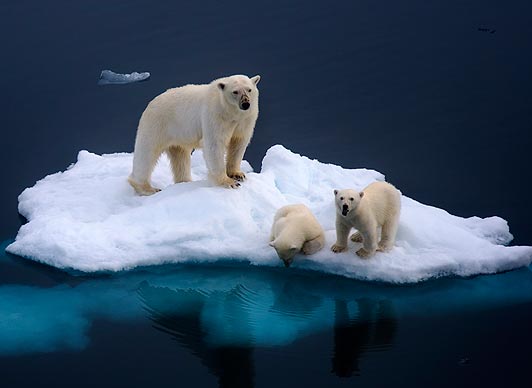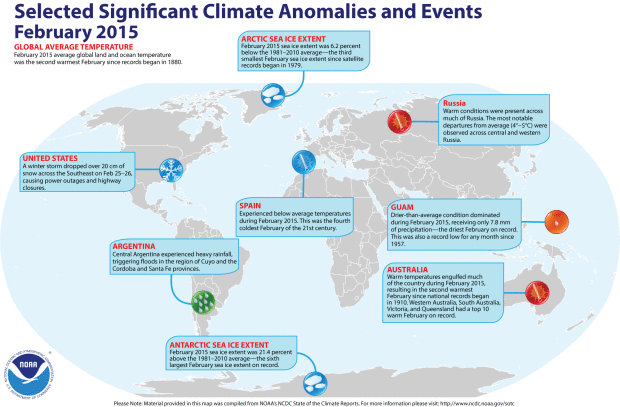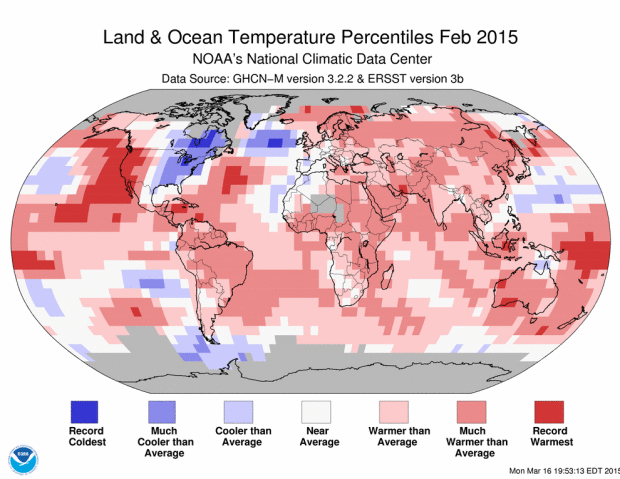
-
During December–February, the average temperature across global land and ocean surfaces was 1.42°F (0.79°C) above the 20th century average. This was the highest for December–February in the 1880–2015 record, surpassing the previous record of 2007 by 0.05°F (0.03°C). – NOAA
NOAA began keeping global temperature data in 1880. Since 1880, this winter is the warmest Earth has had on record. Not great news for snow lovers.
Above average temperatures were recorded in January and February in the USA, much of the eastern North Pacific Ocean, big chunks of Russia, most of Africa, Central America, Norway, Australia, and South America.
The Arctic sea ice winter maximum just occurred and it was the lowest maximum on record. See the video below:

Despite the media frenzy of cold and snow in the eastern USA, it won’t be a record cold year there:
In case you’re wondering, few if any cities in the East will have their coldest winters on record despite a series of high-profile blizzards and record cold waves – mainly because December was relatively mild. – weather.com
More from NOAA on this warmest winter on record:
-
During January–February, the globally-averaged land surface temperature was 2.75°F (1.53°C) above the 20th century average. This was the second highest for January–February in the 1880–2015 record. The highest temperature occurred in 2002, at 2.79°F (1.55°C) above average.
-
During January–February, the globally-averaged sea surface temperature was 0.94°F (0.52°C) above the 20th century average. This was the third highest for January–February in the 1880–2015 record.

